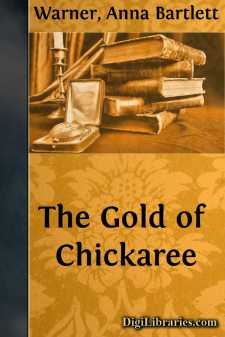Categories
- Antiques & Collectibles 13
- Architecture 36
- Art 48
- Bibles 22
- Biography & Autobiography 813
- Body, Mind & Spirit 142
- Business & Economics 28
- Children's Books 14
- Children's Fiction 11
- Computers 4
- Cooking 94
- Crafts & Hobbies 4
- Drama 346
- Education 46
- Family & Relationships 57
- Fiction 11829
- Games 19
- Gardening 17
- Health & Fitness 34
- History 1377
- House & Home 1
- Humor 147
- Juvenile Fiction 1873
- Juvenile Nonfiction 202
- Language Arts & Disciplines 88
- Law 16
- Literary Collections 686
- Literary Criticism 179
- Mathematics 13
- Medical 41
- Music 40
- Nature 179
- Non-Classifiable 1768
- Performing Arts 7
- Periodicals 1453
- Philosophy 64
- Photography 2
- Poetry 896
- Political Science 203
- Psychology 42
- Reference 154
- Religion 513
- Science 126
- Self-Help 84
- Social Science 81
- Sports & Recreation 34
- Study Aids 3
- Technology & Engineering 59
- Transportation 23
- Travel 463
- True Crime 29
Sort by:
by:
Jane Andrews
THE STORY OF THE AMBER BEADS Do you know Mother Nature? She it is to whom God has given the care of the earth, and all that grows in or upon it, just as he has given to your mother the care of her family of boys and girls. You may think that Mother Nature, like the famous "old woman who lived in the shoe," has so many children that she doesn't know what to do. But you will know better when...
more...
Introduction Love of country is a sentiment so universal that it is only on such rare occasions as called this book into being that there is any need of discussing it or justifying it. There is a perfectly absurd statement by Charles Kingsley, in the preface to one of his books, written fifty years ago, in which he says that, while there can be loyalty to a king or a queen, there cannot be loyalty to...
more...
O MAY I JOIN THE CHOIR INVISIBLE! O may I join the choir invisibleOf those immortal dead who live againIn minds made better by their presence; liveIn pulses stirred to generosity,In deeds of daring rectitude, in scornOf miserable aims that end with self,In thoughts sublime that pierce the night like stars,And with their mild persistence urge men’s mindsTo vaster issues. So to live is heaven:To...
more...
by:
Various
It was a bright and beautiful morning in June, 1927. The war between Venezuela and England had been in progress just three weeks, and every one was wondering why the big monarchy had not whipped the little republic off the face of the earth. But the resources of the South American country had been underestimated, and so had the immense difficulties which confronted England in her endeavor to carry on...
more...
CHAPTER I Dinner was over and the ladies had just risen, when the Professor had begged to introduce them to the new-comer on his walls. The Invader, it might almost have been called, this full-length, life-size portrait, which, in the illumination of a lamp turned full upon it, seemed to take possession of the small room, to dominate at the end of the polished-oak table, where the light of shaded...
more...
I—GOBO STRIKES One day—it was about a week after Allan Quatermain told me his story of the "Three Lions," and of the moving death of Jim-Jim—he and I were walking home together on the termination of a day's shooting. He owned about two thousand acres of shooting round the place he had bought in Yorkshire, over a hundred of which were wood. It was the second year of his occupation of...
more...
PROLOGUE Seated at breakfast on that memorable July morning, Jacob Pratt presented all the appearance of a disconsolate man. His little country sitting-room was as neat and tidy as the capable hands of the inimitable Mrs. Harris could make it. His coffee was hot and his eggs were perfectly boiled. Through the open windows stretched a little vista of the many rows of standard roses which had been the...
more...
PREFACE Woodrow Wilson prefers not to be written about. His enemies may, and of course will, say what they please, but he would like to have his friends hold their peace. He seems to think and feel that if he himself can keep silent while his foes are talking, his friends should be equally stoical. He made this plain in October, 1920, when he learned that I had slipped away from my office at the White...
more...
TROYON'S It must have been Bourke who first said that even if you knew your way about Paris you had to lose it in order to find it to Troyon's. But then Bourke was proud to be Irish. Troyon's occupied a corner in a jungle of side-streets, well withdrawn from the bustle of the adjacent boulevards of St. Germain and St. Michel, and in its day was a restaurant famous with a fame jealously...
more...
CHAPTER I. ON-DIT. 'Papa,' said Primrose, very thoughtfully, 'do you think Hazel will marry Duke?' Dr. Maryland and his daughter were driving homeward after some business which had taken them to the village. 'She will if she knows what is good for her,' the doctor answered decidedly. 'But she has been away from Chickaree now nearly a year.' 'I don't...
more...











